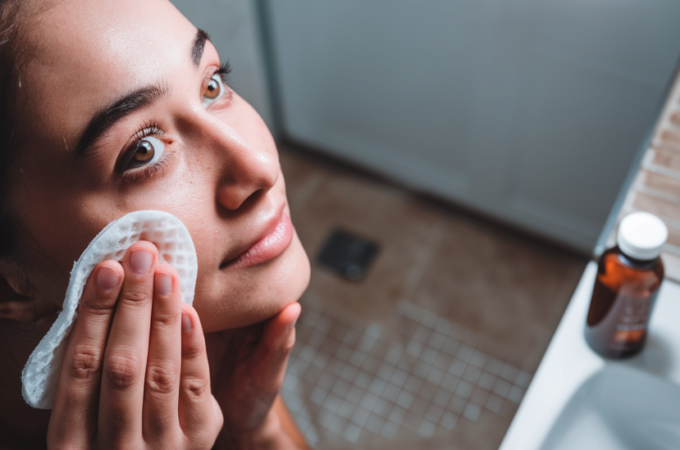
Everything You Need To Know About Retinol
Deemed as skincare’s ‘secret ingredient’, retinol is one of the few ingredients that has been proven to actually work. It’s been a buzzword in the beauty industry for a while now, so why are there still so many that are nervous about adding retinol to their skincare routine? Often misused and underutilised, it’s the gold standard in skincare and is an anti-aging powerhouse that can benefit nearly everyone’s skin. Here’s everything you need to know about the skincare product that might just be the answer to all your skin woes.
What is retinol?

Retinol is one of the main forms of vitamin A, which is essential for cell growth and the health of your skin cells. Studies have shown it can improve skin cell turnover and minimise the breakdown of collagen. It’s found in face creams, serums, eye creams and in some oil formulation.
What are the benefits of retinol?
A key anti-ageing product, retinol can dramatically minimise the look of wrinkles and lift and firm the skin. It can address a lack of tone and elasticity, uneven skin texture and has anti-acne benefits. Functioning like an antioxidant, retinol can help address free radical damage to minimise further signs of ageing.
How do I use retinol?

Retinol is applied at night to clean skin straight after cleansing. You can add your usual moisturiser or oil afterwards, but it’s best to leave a gap of around 20 minutes to let your chosen retinol absorb. Don’t use acids on the same evening as you use retinol, as both are exfoliators and you run the risk of irritating or over-stimulating your skin. Make sure you use a broad-spectrum sunscreen rated SPF 30 or greater every day if you’ve added retinol to your routine.
How do you choose the right retinol for you?
There’s no one rule that works for everyone when it comes to working out what strength of retinol to use. It depends on your skin’s tolerance for retinol, as well as you skin type and skin concerns. To find the best one to suit your individual needs it’s best to try out different strengths and application methods and see how your skin responds. Just make sure you begin with a low concentration of retinol. “Many people think retinol will cause their skin to peel,” said Bethany Johnson at GLAMOURPILOT, “but excessively red skin and peeling only happens when you’ve picked too strong a formula or you’re applying it too often.”
As retinol is sensitive to light exposure and air, any retinol you buy packaged in a jar or clear container will fast become ineffective. Instead, look for a retinol packaged in an air-tight container.
You can choose a retinol based on what texture you prefer, or one that works well alongside other products in your routine. When it comes to skin type, dry skins usually benefit from a cream and lotions are good for normal to combination skin. Serums or gels are a lightweight option for oily or congested skin.




